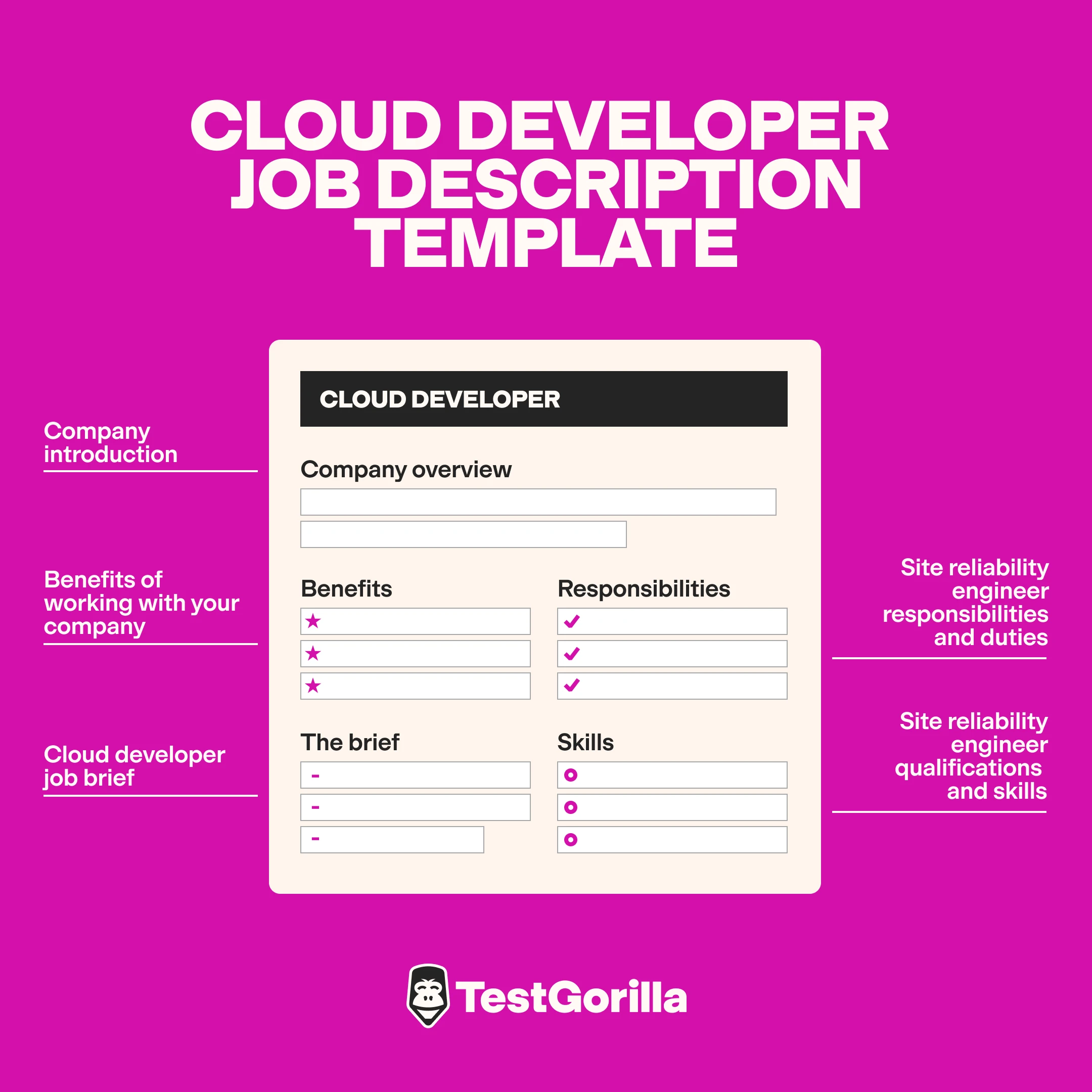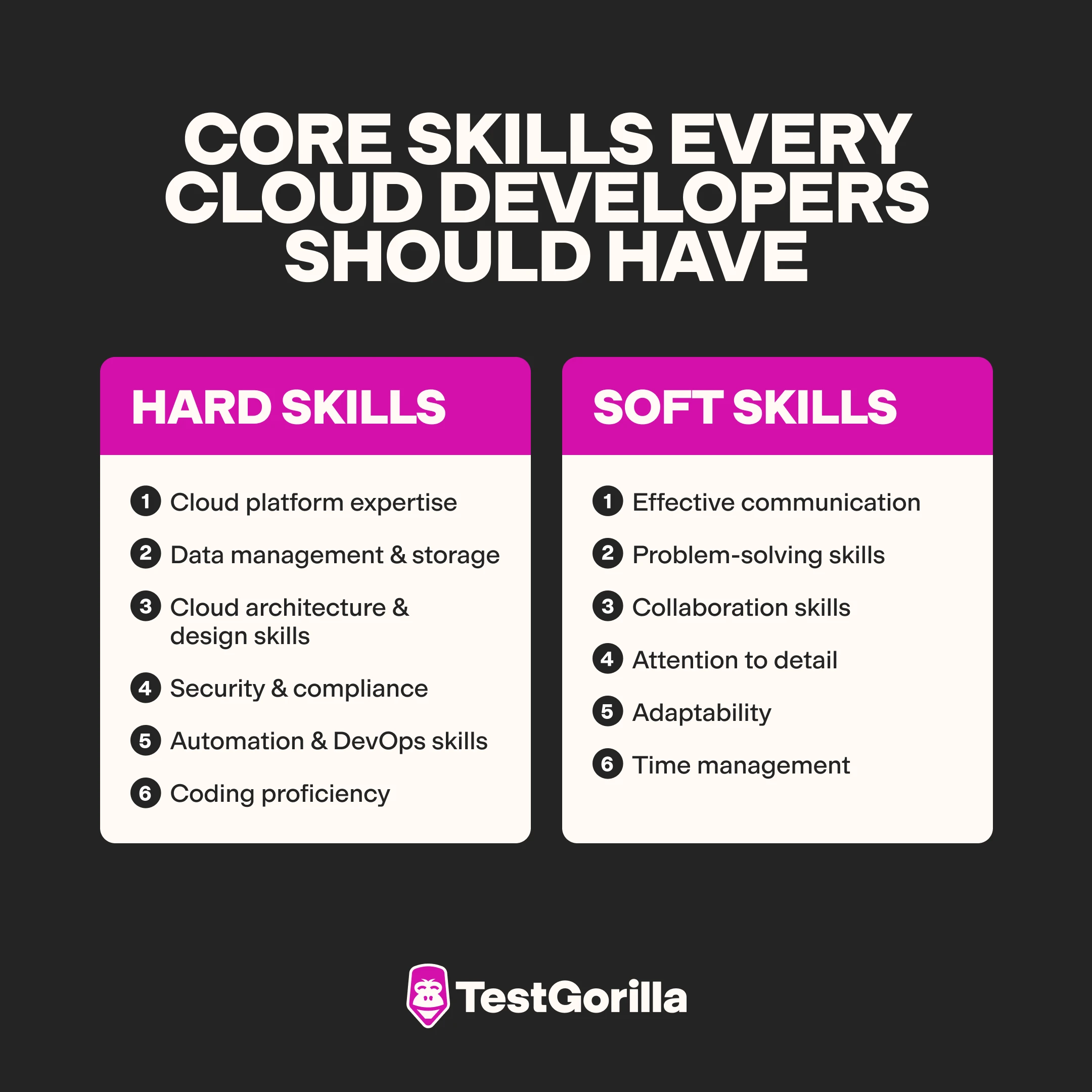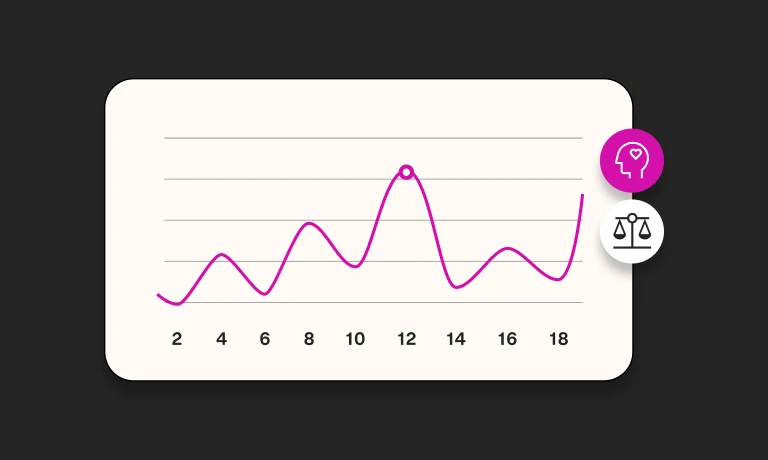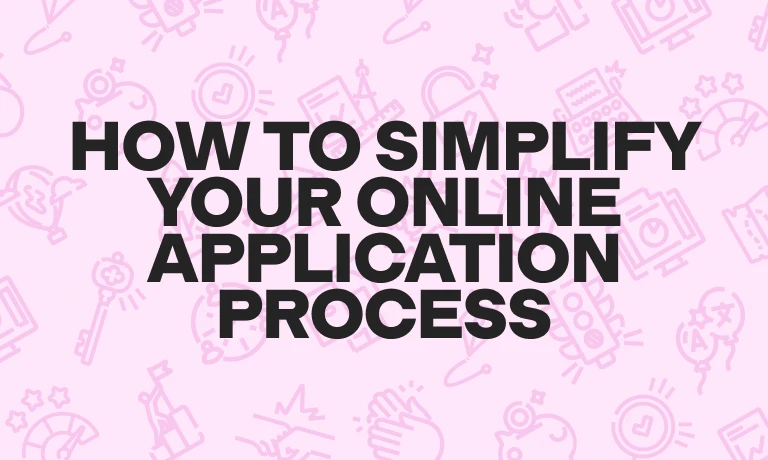Cloud Developer job description template
Company Introduction
[Company Name] is a leading technology company specializing in innovative cloud solutions. We are dedicated to fostering a culture of collaboration, creativity, and continuous improvement. Our dynamic work environment encourages personal and professional growth, making [Company Name] an excellent place to build a rewarding career.
Benefits of Working with [Company Name]
At [Company Name], we offer a range of benefits to support our team members, including flexible working hours, comprehensive health insurance, and opportunities for career development. Our employees enjoy a healthy work-life balance, engaging team-building activities, and the chance to work on cutting-edge projects that drive real impact.
Cloud Developer Job Brief
As a Cloud Developer at [Company Name], you will be responsible for designing, developing, and maintaining our cloud-based applications and services. You will work closely with our development and operations teams to ensure the scalability, reliability, and performance of our cloud infrastructure.
[Company Name]
Job Title: Cloud Developer
Reports to: [ ]
Position Type: [For example, full-time or part-time]
Location: [Remote, hybrid, on-site, address, etc.]
Salary and Benefits: [Salary and benefits details]
Responsibilities and Duties
Design, develop, and deploy cloud-based applications and services.
Collaborate with cross-functional teams to define, design, and ship new features.
Maintain and optimize existing cloud applications.
Ensure the performance, security, and scalability of cloud solutions.
Implement and manage CI/CD pipelines for cloud deployments.
Troubleshoot and resolve issues in development, test, and production environments.
Stay updated with the latest industry trends and best practices in cloud development.
Skills and Qualifications
Required Skills and Experience:
Proven experience as a Cloud Developer or similar role.
Strong knowledge of cloud platforms (e.g., AWS, Azure, GCP).
Proficiency in programming languages (e.g., Python, Java, C#).
Experience with containerization technologies (e.g., Docker, Kubernetes).
Familiarity with CI/CD tools and processes.
Solid understanding of cloud security best practices.
Preferred Skills and Experience:
Advanced degree in a related field.
Certification in cloud platforms (e.g., AWS Certified Developer).
Experience with infrastructure as code (IaC) tools (e.g., Terraform, CloudFormation).
Knowledge of microservices architecture.
Experience with monitoring and logging tools (e.g., Prometheus, ELK Stack).
[Company Name] is an equal-opportunity employer. We celebrate diversity and are committed to creating an inclusive environment for all employees. We look forward to welcoming you to our team!
Table of contents
- What is a cloud developer?
- Key skills to look for in cloud developers
- How to write an effective cloud developer job description
- 3 things to avoid when writing a job description for a cloud developer
- Next steps: Attracting and assessing cloud developer candidates
- FAQs
- Hire excellent cloud developers with TestGorilla
What is a cloud developer?
Cloud technology allows you to store, manage, and process data over the internet instead of on a local computer. Cloud developers are the ones behind your online tools and services, making sure cloud-based applications like web and phone apps run smoothly and efficiently.
Day to day, cloud developers team up with different departments to create, optimize, and maintain the cloud applications you use, such as Salesforce or Slack. They use their skills to write code, often in languages like Python, Java, or JavaScript, design cloud-based solutions, and ensure these applications are scalable and secure.
They’re also the go-to people for troubleshooting cloud issues like server outages, connectivity problems, and security breaches. They also apply updates and patches to keep the cloud infrastructure secure and up-to-date.
Plus, they help train others, such as their non-technical colleagues, to use cloud technologies effectively, ensuring everyone gets the most out of the system.
Key skills to look for in cloud developers
Ideally, your cloud developer candidates will have these key skills:
Hard skills
Cloud platform expertise: To create cloud applications, cloud developers must have in-depth knowledge of tools like AWS, Google Cloud, or Azure.
Data management and storage: Cloud developers handle databases and cloud storage with tools like SQL for secure data migration, so experience is essential.
Cloud architecture and design skills: This skill set ensures they can create efficient and scalable cloud solutions.
Security and compliance: Candidates should be familiar with cloud security best practices, data encryption, and compliance standards (like GDPR and HIPAA) to protect data and meet regulatory requirements.
Automation and DevOps skills: Experience with automation tools and DevOps practices, including CI/CD pipelines, infrastructure as code (IaC) with tools like Terraform, and containerization with Docker and Kubernetes is a must.
Coding proficiency: Cloud developers create cloud solutions in programming languages like Python, JavaScript/Node.js, and Go, so they need to be skilled coders.
Soft Skills
Effective communication: Cloud developers often have to explain cloud concepts clearly to non-technical users to ensure everyone understands cloud-related decisions and their impact.
Problem-solving skills: These skills are necessary for resolving a multitude of cloud-related issues creatively and effectively.
Collaboration skills: To ensure seamless cloud integration, they must be able to work well with all teams, including developers, operations, and business stakeholders.
Attention to detail: Ensures accuracy in setting up and managing cloud resources, preventing misconfigurations and data mishandling.
Adaptability: Candidates must keep up with new cloud tech, trends, and best practices so they can adjust their cloud solutions to meet changing business needs.
Time management: They’ll need to juggle multiple cloud projects efficiently simultaneously.
The best insights on HR and recruitment, delivered to your inbox.
Biweekly updates. No spam. Unsubscribe any time.
How to write an effective cloud developer job description
These best practices will help you write a great job description that attracts strong cloud developer candidates.
Emphasize the importance of scalability and performance
Tell them how the role will focus on creating scalable and high-performing cloud solutions. If cloud developers can't meet this requirement, you might end up with slow response times, increased downtime, and an inability to handle user growth effectively.
Example: “As our Cloud Developer, you'll ensure our cloud applications are scalable and perform optimally under varying loads. Your expertise will help us deliver a seamless user experience and handle growth efficiently.”
Express the need for security and compliance knowledge
Point out the importance of understanding cloud security and compliance regulations. Without this essential knowledge, your company could experience devastating data breaches and costly legal issues.
Example: “Join us at [Company Name] and be our go-to expert on cloud security and compliance. You'll help protect our data and ensure we meet all regulatory requirements, which is critical for our business.”
Mention collaboration with DevOps teams
Speak about the role's collaboration with DevOps teams to streamline cloud operations and deployments. This collaboration ensures that developers can deploy features efficiently, resolve issues quickly, and improve their system’s reliability.
Example: “We need a Cloud Developer who can communicate effectively and work closely with our DevOps team to automate deployments and improve our cloud infrastructure. Your collaboration will enhance our efficiency and reliability.”
3 things to avoid when writing a job description for a cloud developer
Avoid these common mistakes when writing cloud developer job descriptions.
1. Skip the laundry list of requirements
Focus on the key skills and qualifications your candidates need for the job, like “familiarity with CI/CD pipelines.” Overloading the job description with too many requirements limits your candidate pool. Clear requirements attract more qualified applicants.
Tip: To encourage candidates with a wider skill range to apply, you can include a “nice to have” section with skills/qualifications you’d love for them to have but aren’t necessities—like networking, AI, and machine learning.
2. Don’t ignore diversity and inclusion
Be sure to speak about your company’s culture around diversity and inclusion. Most candidates value an inclusive work environment, and not highlighting your company’s commitment to it could deter talent from diverse backgrounds.
3. Skip outdated technology requirements
Make sure your job description is up-to-date. Don't ask for skills in obsolete technologies like old versions of cloud platforms. Fewer candidates may apply as those with advanced knowledge and skills would be turned off by the idea of working with older, buggy tech.
We think this might interest you: Cloud engineer job description for hiring
Next steps: Attracting and assessing cloud developer candidates
Now that you have the cloud developer job description down pat, you can publish it online. As you start receiving applications, however, ensure you know how to assess your candidates. A bad hire can cost you security breaches, data loss and much more.
To avoid that headache, use a skills-based hiring approach, such as pre-employment testing. This eliminates guesswork and bias in assessing your cloud developer candidates’ skills.
Plus, with more than 350+ tests backed by science, TestGorilla makes it easy to compile a comprehensive assessment. You can combine up to five tests and even customize questions to suit your needs.
TestGorilla has several tests for cloud developers, which include our:
Combine these with our Culture Add test and you’re bound to find the right match for your team.
FAQs
Next, we’ll look at the most commonly asked questions about cloud developers.
How to become a cloud developer?
Becoming a cloud developer is a fantastic career move. Here's how to get started:
Learn programming: Start with languages like Python, Java, or JavaScript.
Get educated: A degree in computer science or IT helps but isn't always required.
Master cloud platforms: Dive into AWS, Azure, or Google Cloud.
Earn certifications: Aim for certifications like AWS Certified Developer or Azure Developer.
Get hands-on: Build projects and practice online.
Stay updated: Follow the latest cloud trends and technologies.
Network: Join tech communities and attend events.
What is the difference between a developer and a cloud developer?
A developer creates software for local systems or traditional servers, such as desktops, laptops, or in-house data centers. A cloud developer builds applications specifically for cloud platforms like AWS or Azure, focusing on scalability and cloud-specific features.
Hire excellent cloud developers with TestGorilla
A great cloud developer job description will tell your candidates the specific technical expertise and interpersonal skills needed for the role and paint your company as the ideal workplace for cloud developers.
With the cloud developer job description added to your job postings, you can start testing your applicants’ skills and personalities to see if they’re a good fit. TestGorilla makes this step easy and without bias with our extensive test library.
You can combine up to five tests for a thorough assessment and bulk administer them to candidates. With the added bonus of real-time results and in-depth result analytics, you’ll find your next cloud developer in no time!
Ready to get started? Book a free demo and sign up for your free account today.
You've scrolled this far
Why not try TestGorilla for free, and see what happens when you put skills first.




















